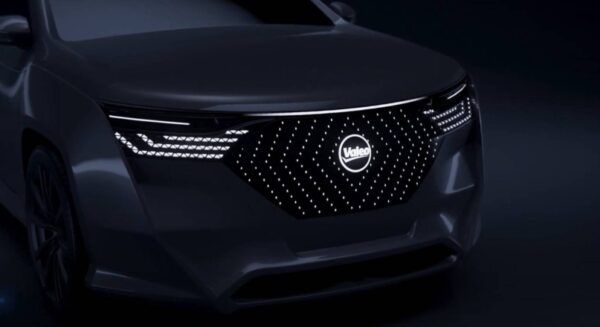Valeo Organosheet: Composite material for cleaner mobility solutions
Valeo is revolutionizing and decarbonizing mobility from the inside out.
The automotive industry is going through a complete transformation with the acceleration of electrification. The paradigm is changing and Valeo has developed efficient, high-performance solutions to meet this challenge.
Valeo has made a strong commitment to reducing its carbon footprint to be carbon neutral by 2050. To offer its customers products that are always safer but also more sustainable, Valeo has developed real expertise, with teams dedicated to the development of new innovative materials and their many applications, such as innovative Organosheet.
What is Organosheet Composite material?
To decarbonize the car, beyond electrification, Valeo is working to reduce vehicle weight by using innovative materials such as its Organosheet to build car parts.
These high-performance composites are made of a fabric of long glass fibers embedded in a thermoplastic matrix. It offers a unique combination of strength, flexibility, and lightness, and has a high strength-to-weight ratio that makes it ideal for a wide range of automotive applications.
Automotive engineers use Organosheet to create components that are strong enough to meet crash safety standards, yet lightweight enough to improve energy efficiency. It can be used in structural reinforcements for the vehicle, battery cases, bolsters and other interior components.
The properties of this material open many opportunities to integrate technologies such as LiDAR or lighting supports by guaranteeing the stability of light panels and radars on the front of the vehicle.
More sustainable automotive solution
Composite materials are a low-carbon alternative to current metal solutions. The same vehicle components made of steel or aluminum can be made with composite material, like Organosheet.
This innovative composite material offers flexibility and durability that traditional materials do not, and it still has the same shock absorption properties as metal, so it ensures passenger safety.
It’s up to 30% lighter than the same components in metal, and with a carbon footprint that’s nearly half that of aluminum, this solution has the lowest carbon footprint on the market.
Valeo Organosheet is also a sustainable choice. It’s a recyclable material, which means it can be reused or repurposed at the end of its life cycle, reducing waste and supporting sustainability.
A game-changer for the automotive industry
Valeo is the first automotive supplier to series-produce these new composite materials for the automotive industry.
It offers the strength, flexibility, and durability that manufacturers need to create high-performing vehicles that are energy-efficient and more environmentally friendly, and it’s more affordable than metal components.
As the automotive industry and mobility continue to evolve, we can expect to see more and more manufacturers turn to innovative materials like Valeo’s Organosheet to create cleaner, safer mobility.
Some examples of Valeo components made from Organosheet:
- The organosheet crossmember is the world’s first structural part made of thermoplastic composite materials for mass production. In series production since 2018, it offers a weight reduction of around 30%.
- The first organosheet case for the battery holder (48V) has been in series production since 2020. It offers a weight saving of 40% compared to a metal solution. This concept applies to the battery cases but also to the front cases.
- The front bumper beam is under development with several customers and offers an average weight saving of 30%.
Similar News

Valeo Group | Apr 9, 2025 | 2 min
Valeo Named ADAS Supplier of the Year by General Motors for Third Consecutive Year


